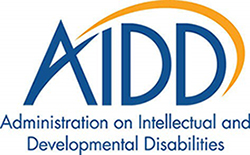Welcome from our director
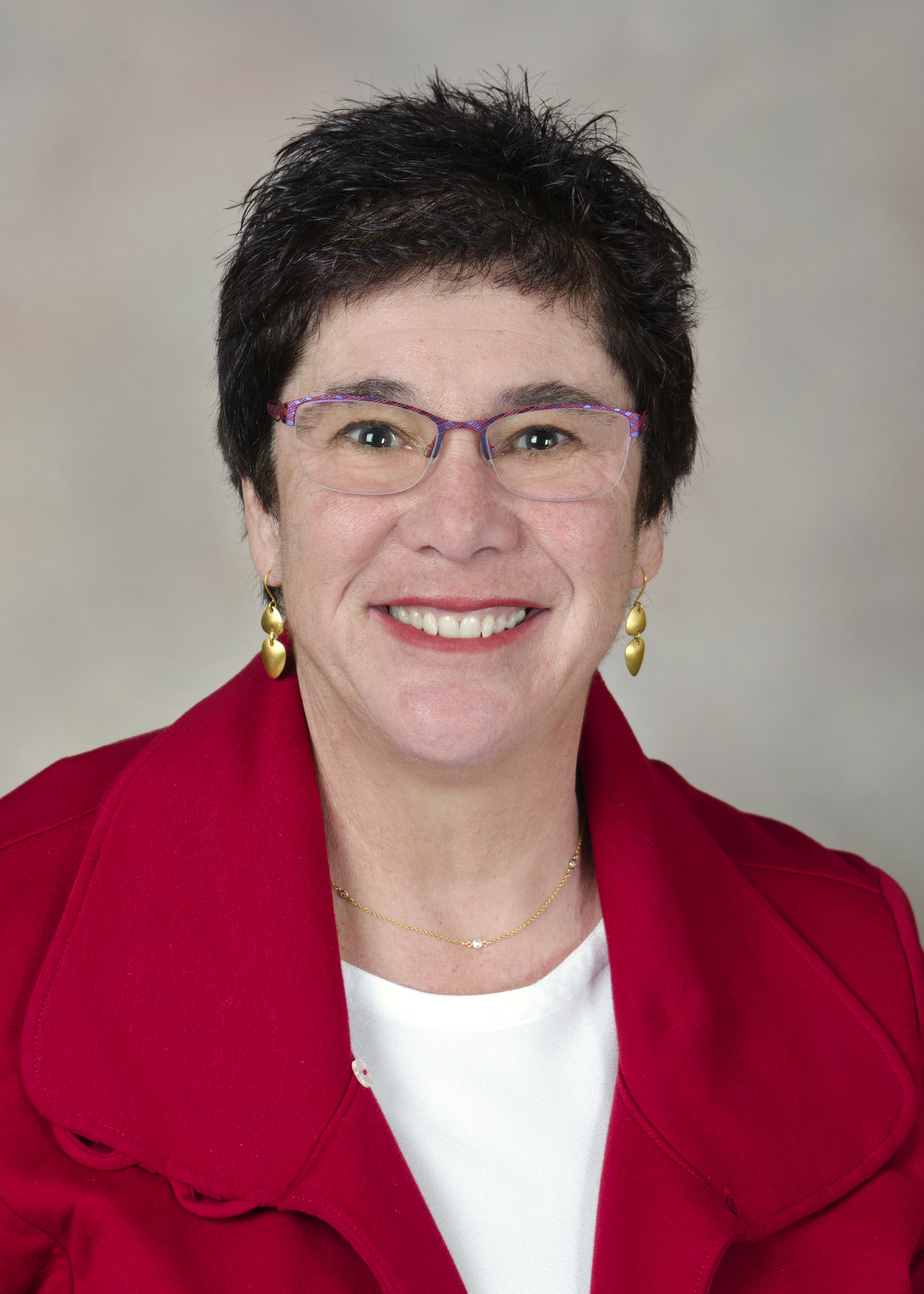
The REKNEW research group addresses the complex communication needs of children and adult groups with developmental, acquired and/or neurodegenerative disabilities. We work on many different REKNEW projects, targeting different childhood and adult groups and communication supports. Our approach is based on a philosophy of Participatory Action Research: we believe that individuals with complex communication needs should be part of our research endeavors, from the initial questions posed in a study to the dissemination of research results.
We invite you to explore our website and examine our different clinical research projects. We would be happy to discuss our work with you, whether you are interested in participating in a study, supporting us, learning about our recent publications or knowledge translation activities, or just finding out more about communication supports for adults and children.
~Dr. Melanie Fried-Oken
Who funds our work
Who we work with
REKNEW Projects are conducted in collaboration with various community partners as well as the following organizations:
- Layton Aging and Alzheimer’s Disease Center
- Northeastern University (Cognitive Systems Laboratory)
- University of Washington School of Education's Haring Center
- Consortium for Accessible Multimodal Brain-Body Interfaces (CAMBI)
- Michigan Technological University
- Oken Cognitive Neuroscience Lab (ORCCAMIND)
- OHSU University Center for Excellence in Developmental Disabilities (UCEDD)
- Portland State University Speech and Hearing Sciences
- Portland State University Systems Science Graduate Program
REKNEW projects have reached out to several populations, including adults with Alzheimer’s disease (AD), Primary Progressive Aphasia (PPA), Locked-In Syndrome (LIS) and Amyotrophic Lateral Sclerosis (ALS). We have also looked at the outcomes of training caregivers in Alzheimer’s Care Units to use communication systems with their residents.
Our technologies
Brain-computer interface systems
Our research seeks to develop an efficient and effective brain computer interface (BCI) system that will serve as a communication access method for individuals with locked-in syndrome. We strive to improve the accuracy and speed of the technology, as well as user satisfaction, for a system that can be used for functional written and spoken expression.
View more information about our BCI systems and how you can get involved in our studies
Smart Predict App for AAC Conversation
Our research seeks to develop a unique and practical Smart Prediction AAC system that exploits the physical skills, language skills, and shared world knowledge of a nondisabled co-constructor to support the AAC user. By examining message generation from a co-construction perspective, we are reimagining the concept of AAC conversation and the turn-taking paradigms that are standard in this rehabilitation field, and may offer the field of AAC an innovative and unique way to improve communication effectiveness in complex communication dyads.
Upcoming events
None currently.
Latest news
Congratulations to Betts Peters PhD CCC-SLP for her recent election to the BCI Society Board.
Betts Peters, Ph.D., CCC-SLP and Dan Klee, B.S. presenting their posters related to brain-computer interface (BCI) on behalf of the Consortium for Accessible Multimodal Brain-Body Interfaces (CAMBI) team at the International BCI Society meeting, held in Brussels, Belgium in June 2023.
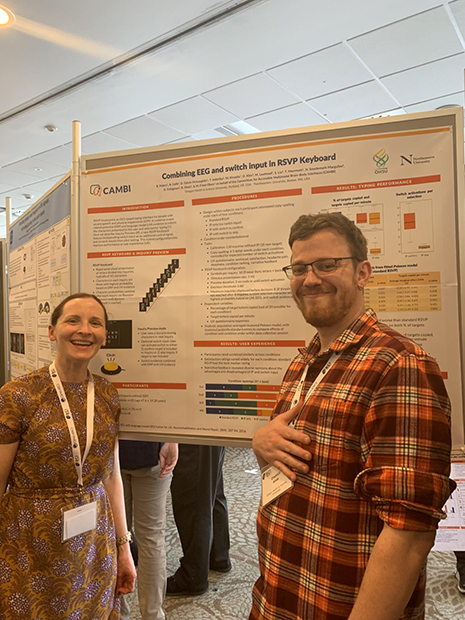
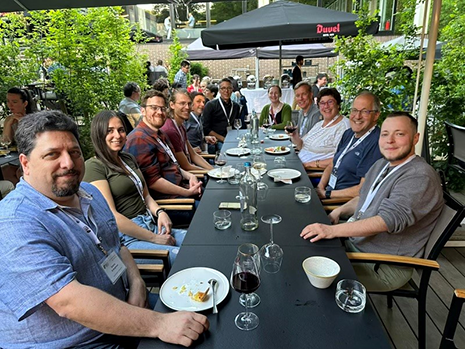
CAMBI team members, Betts Peters, Ph.D., CCC-SLP and Dan Klee, B.S. present posters at the OHSU Research Week in May, 2023.
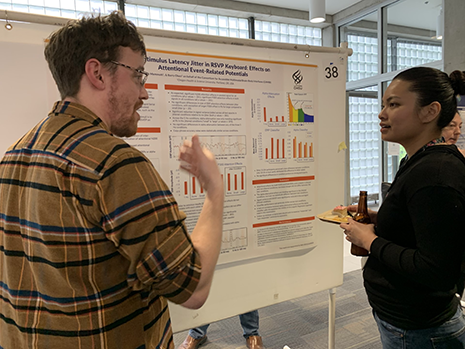
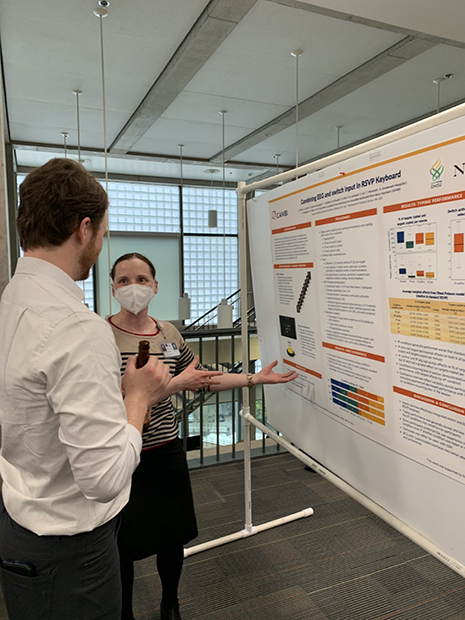
Melanie Fried-Oken, PhD presenting at the July 2023 International Society for Augmentative and Alternative Communication (ISAAC) conference in Cancun, Mexico. Her co-presenters were Dr. Keith Vertanen (Michigan Tech University) and Will Wade (ACE Center, UK).
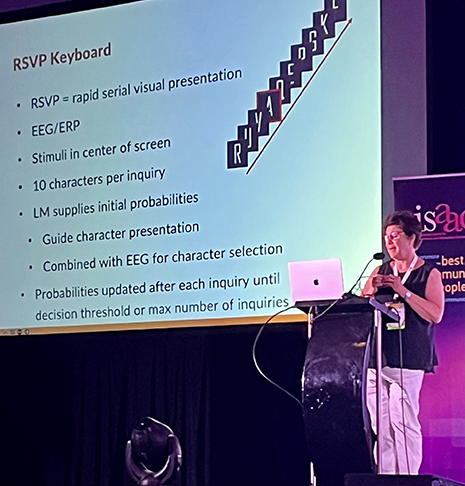
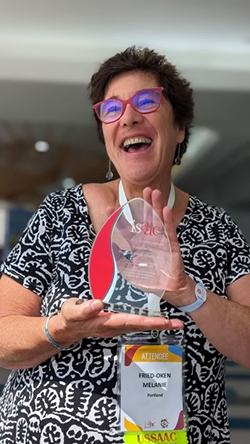
Congratulations to Melanie Fried-Oken, PhD who was named a fellow of the International Society for Augmentative and Alternative Communication (ISAAC) at the 2023 conference in Cancun, Mexico this past July!
Richard Rosenbaum, MD, tries out a brain-computer interface system with Betts Peters, PhD, CCC-SLP after joining the Consortium for Accessible Multimodal Brain-Body Interfaces (CAMBI) in July 2023.
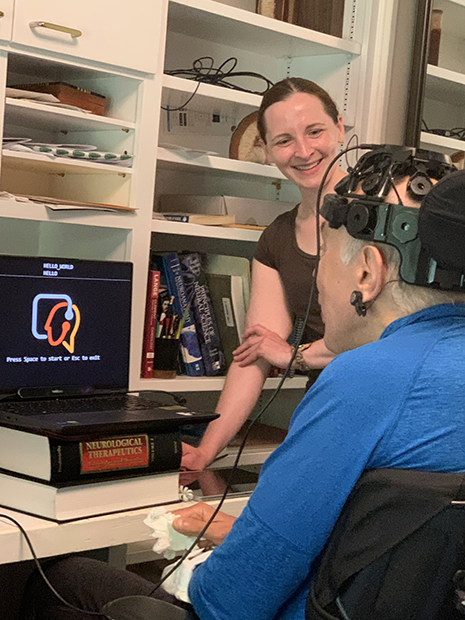
Contact REKNEW
Please feel free to contact us regarding getting involved in our projects or supporting our work.
Director
Melanie Fried-Oken, Ph.D.
503-494-7587
Connect with REKNEW
Watch our latest video below, where Betts Peters, Ph.D., C.C.C.-S.L.P., describes brain-computer technologies for communication.
Get involved
Seeking people for our research studies
- For current study participant opportunities, contact us at reknew@ohsu.edu. We always have something going on.

